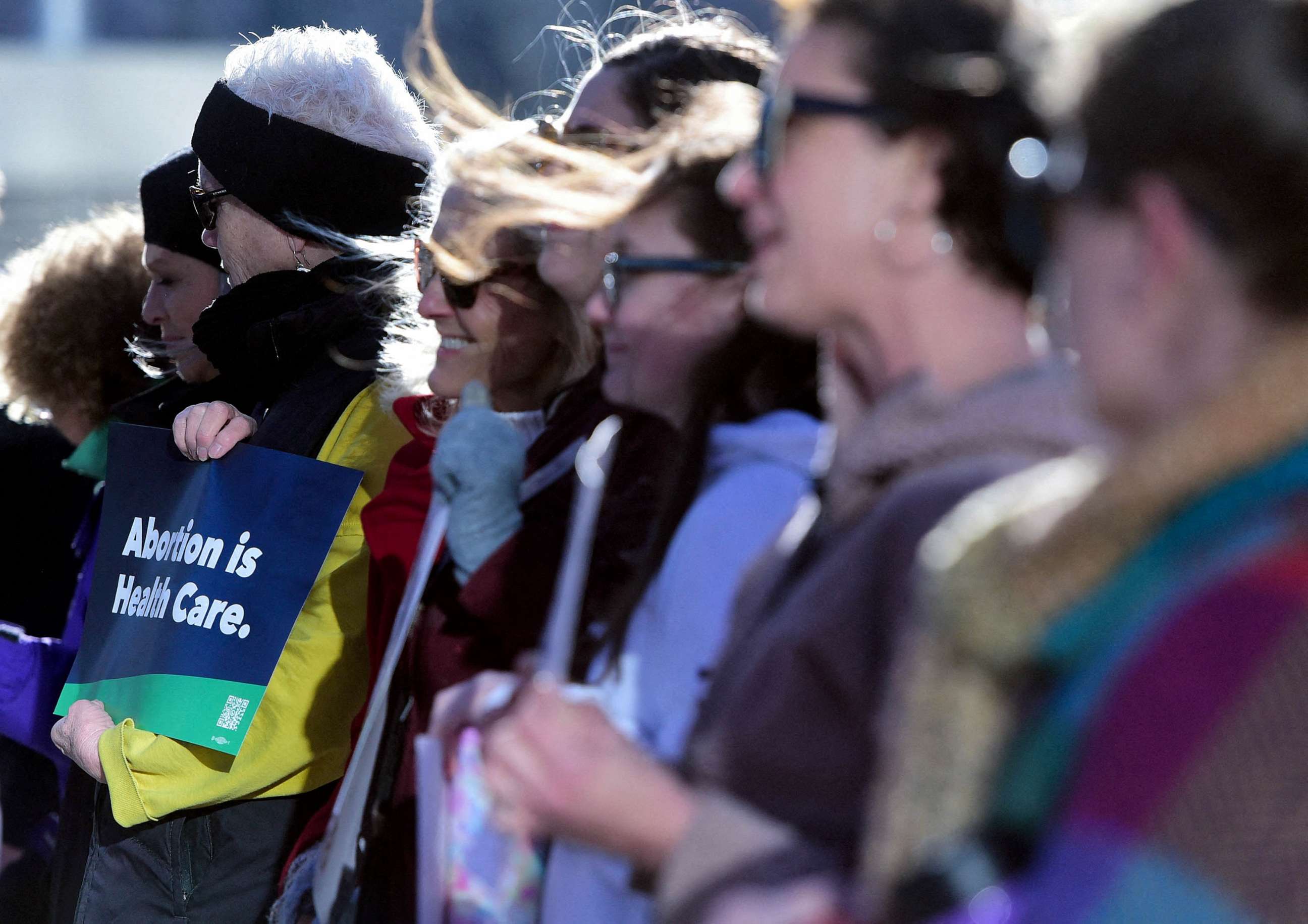Judge temporarily blocks Wyoming abortion ban, allowing abortions to resume
Last week, Gov. Mark Gordon allowed the ban to become law without his signature.
A Wyoming judge temporarily blocked a state abortion ban, prohibiting the state and its employees from enforcing the ban. The temporary restraining order will remain in effect unless it is dissolved or modified by a court order, according to court documents.
The ban prohibits nearly all abortions, with exceptions for rape, incest and to save a woman's life or prevent irreversible bodily harm, according to the law. The law makes violating the ban a felony punishable by up to five years in prison and a fine of up to $20,000.
Under the ban, abortions would be permitted for ectopic pregnancies, fetuses with fatal anomalies and women who need cancer treatment, among other exceptions.
Wyoming also became the first state to ban abortion pills, separate from all abortion services, last week in a bill signed into law by Wyoming Gov. Mark Gordon.

In her decision, Teton County District Court Judge Melissa Owens said the temporary injunction will "preserve the status until the merits of an action can be determined," court documents show.
Gov. Gordon allowed the ban to become law last week without his signature.
In a statement last week, Gordon said he believes that if the state legislature seeks to settle the issue of abortion, it may have to come through a constitutional amendment.
"If the legislature wants to expressly address how the Wyoming Constitution treats abortion and defines healthcare, then those issues should be vetted through the amendment process laid out in Article 20 of the Wyoming Constitution and voted on directly by the people," Gordon said.
Wyoming was one of 13 states that had enacted trigger bans on abortion that were set to go into effect when the Supreme Court overturned Roe v. Wade. The trigger ban, which prohibits abortions in all circumstances except rape, incest or if the mother is at serious risk of death or injury, was blocked by a court as litigation to determine its legality under the state constitution continues.




